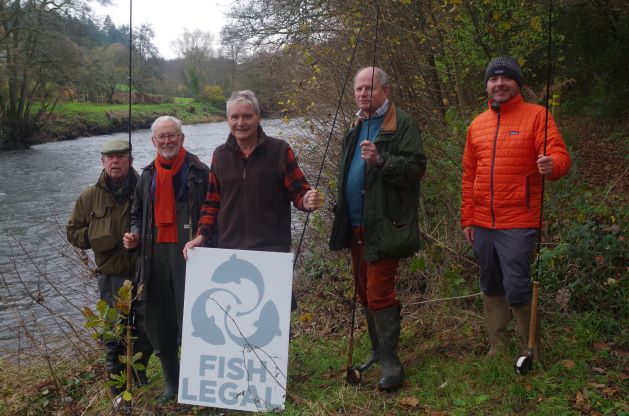The determined efforts of five individuals have secured a successful outcome to a private claim following a pollution incident in the River Mole.
In July 2019, anaerobic digestate being spread as a fertiliser on fields near South Molton by a farmer and contractor ended up in the river in large quantities.
The Environment Agency (EA) estimated that about 15,000 fish were killed over a 5km stretch, making it an EA Category 1 pollution event.
Following the EA’s successful prosecution of the farmer, five members of the River Taw Fisheries & Conservation Association (RTFCA) worked with Fish Legal, an angling association supporting its members to bring legal challenges in relation to river pollution, to initiate a private claim.
Fish Legal member, Alex Gibson said: “This was an ecological disaster that happened during my Chairmanship of the RTFCA.
“Adult sea trout, adult brown trout, juvenile salmon and juvenile brown trout, some of which would have become sea trout, were killed, along with stone loach, bullhead and minnows.
“Farmers should not be allowed to get away with polluting our rivers and Category 1, and where possible Category 2, incidents must be prosecuted by the EA.
“Our claim has led to us providing £18,000 to Westcountry Rivers Trust for river improvement work on the Mole, in consultation with RTFCA’s Committee.”
Mr Gibson added that rather than opt for an Enforcement Undertaking, this type of action acts as a better deterrent to bad practice.
Westcountry Rivers Trust CEO Dr Laurence Couldrick said: “The River Mole incident has shown that both prosecutions and Enforcement Undertakings are deeply flawed processes as we constantly undervalue our environment, especially our rivers.
“Given that the EA fine (which went to the government) worked out at just under 13p per fish, this money, from a private action, will directly benefit the health of the river and its habitats via our work and we are pleased the RTFCA is supporting our charity in this way.
“The government is now changing the system so that water company river pollution fines go into a river restoration fund rather than to the Treasury, but as criminal fines (such as the criminal case on the river Mole) are still based on the affordability of polluters, in several cases they do not cover the costs of remediation.”
On confirmation of the outcome in this particular claim, Mr Gibson thanked the other claimants, the RTFCA Committee, and the “excellent work done by Fish Legal and in particular by Justin Neal”.
He added: “Having continued to take responsibility until the file could be closed, I’m hopeful that the RTFCA’s Chair (and WRT trustee) Andy Gray never has to face anything similar.
“For many reasons this was never going to be a straightforward case but I am happy the case is now closed.”
Visit fishlegal.net for more news.
If you need to report a pollution incident within freshwater habitats, contact the Environment Agency on 0800 80 70 60.
Links to relevant articles:


